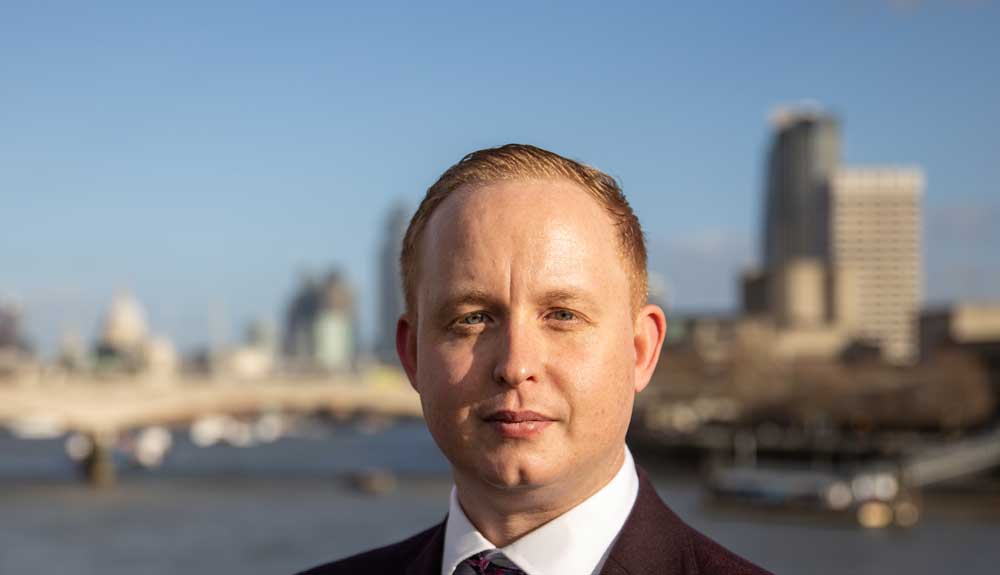Danny McGowan: working with our federation partners to fight for your rights
19 January 2024

Despite seafarers facing increased dangers in the Red Sea, other areas of the Union's international work alongside our global partners must continue. Nautilus head of international relations Danny McGowan reports on the Union's attendance at two recent International Transport Workers' Federation (ITF) meetings
At the end of 2023, I attended some International Transport Workers' Federation (ITF) meetings – the Seafarers' Section Conference and the Fair Practices Committee – representing Nautilus alongside general secretary Mark Dickinson and executive officer Sascha Meijer.
We were also joined by a number of representatives from Nautilus Federation affiliates.
As a result of the Covid-19 pandemic, these were the first such meetings held in six years. Covid-19 has of course had an impact on international work programmes since 2020; however, these meetings were an important time for Nautilus to set the agenda for the years ahead.
The Union submitted several motions at the events. Building on the work we undertook at the Union's General Meeting in October 2023, Mr Dickinson delivered a speech on the importance of the Just Transition to maritime professionals.
I introduced the topic of Artificial Intelligence (AI) to the ITF's agenda by delivering a speech to the conference which had been written by an AI tool. We called for a union-led discussion on the topic to assess the impact of this developing technology on our industry.
A maritime chatbot speech
The following one-minute chatbot speech on the risks of artificial intelligence in the maritime industry, was created by ChatGPT, one of many AI-generated tools freely available. Within 15 seconds it had produced this text:
Chair, conference,
My name is Danny McGowan and I am the head of international relations at Nautilus International, moving motion number four on Artificial Intelligence, or AI.
Today, the maritime industry navigates toward the promise of AI-driven innovation, but this voyage is not without its perils.
As we embrace automation and artificial intelligence, the risks to the workforce cannot be ignored.
Trade unions, grouped underneath umbrella organisations like the International Transport Workers' Federation (ITF), stand as crucial guardians, advocating for the welfare of seafarers.
The integration of AI in maritime operations brings efficiency and safety, yet it casts shadows of potential job displacement and reduced human oversight.
Trade unions play a pivotal role, striving to balance technological advancement with the protection of maritime workers' rights, ensuring fair working conditions, adequate training, and employment security.
We must steer this technological evolution prudently, fostering collaboration between industry stakeholders and trade unions.
Striking a balance between AI's benefits and the workforce's well-being is imperative for a sustainable maritime future.
Together, let us chart a course where innovation coexists harmoniously with the protection and empowerment of those who power our maritime world.
Electric vehicles, flags of convenience, diversity
Ms Meijer spoke about the safe carriage of electric vehicles (EV) and the need for the IMO to work with industry and unions to develop mandatory regulations to address the additional risks involved in the carriage of EVs.
We highlighted the importance of diversity in maritime, and marked the 75th anniversary of the ITF's Flag of Convenience campaign by calling for the ITF to continue efforts to drive shipowners to reputable national flags, and to reinforce UNCLOS Article 91 which requires a genuine link between the shipowner and the country of registration.
We look forward to working on behalf of maritime professionals as we lead and participate on these topics with our colleagues in the Nautilus Federation and the ITF.
- If you would like to find out more, please contact me via dmcgowan@nautilusint.org
- To find out more about the ITF, go to www.itfglobal.org and for the Nautilus
Federation, see nautilusfederation.org.
Tags
